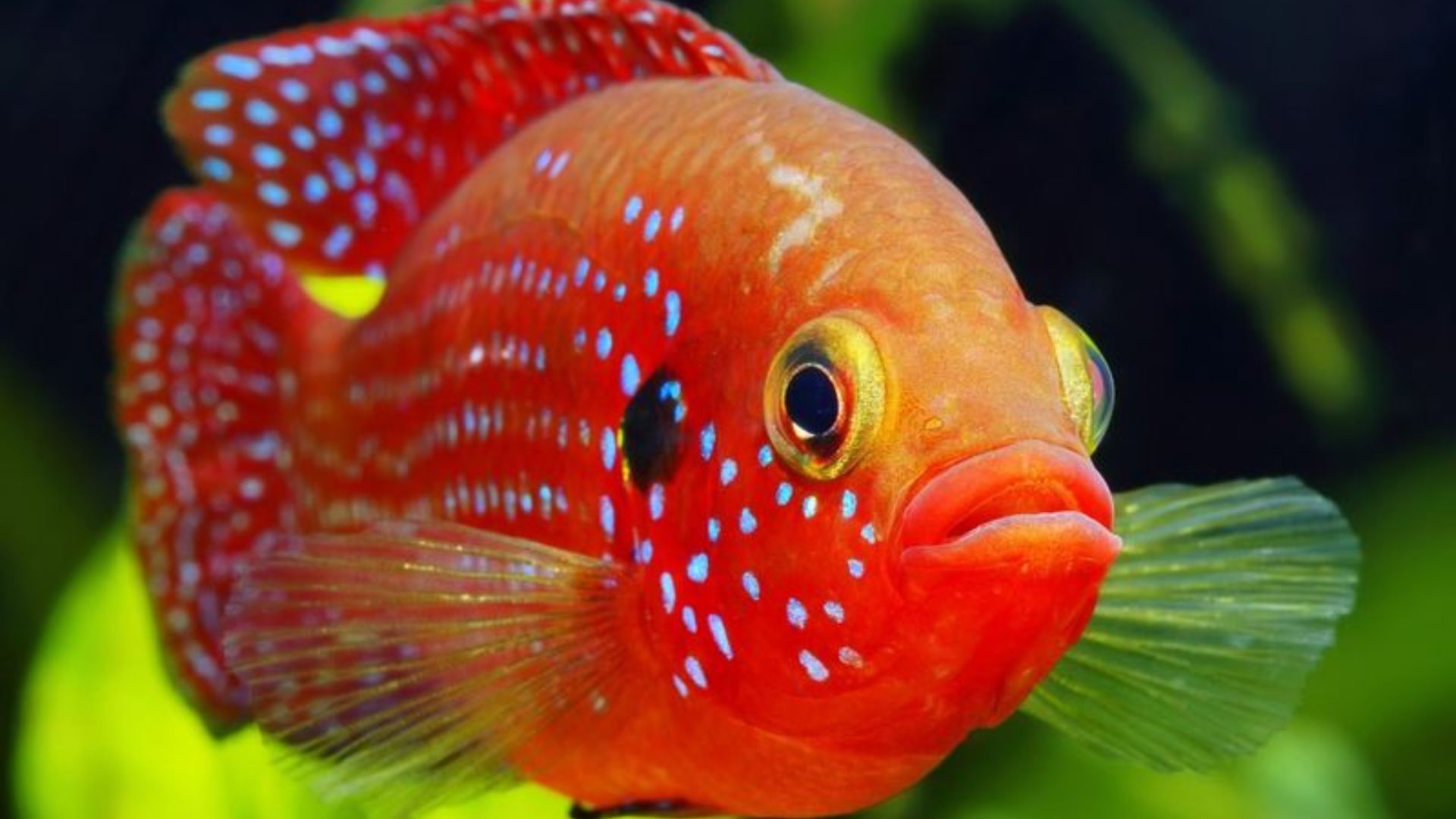Aquariums are often seen as serene and peaceful, filled with colorful and gentle fish. However, not all aquarium fish are as friendly as they appear.
Some have hidden temperaments, territorial behaviors, or special care needs that can surprise even experienced fish keepers.
Read on and find ou which aquarium fish might look charming but can display aggressive or challenging behaviors.
1. Piranha
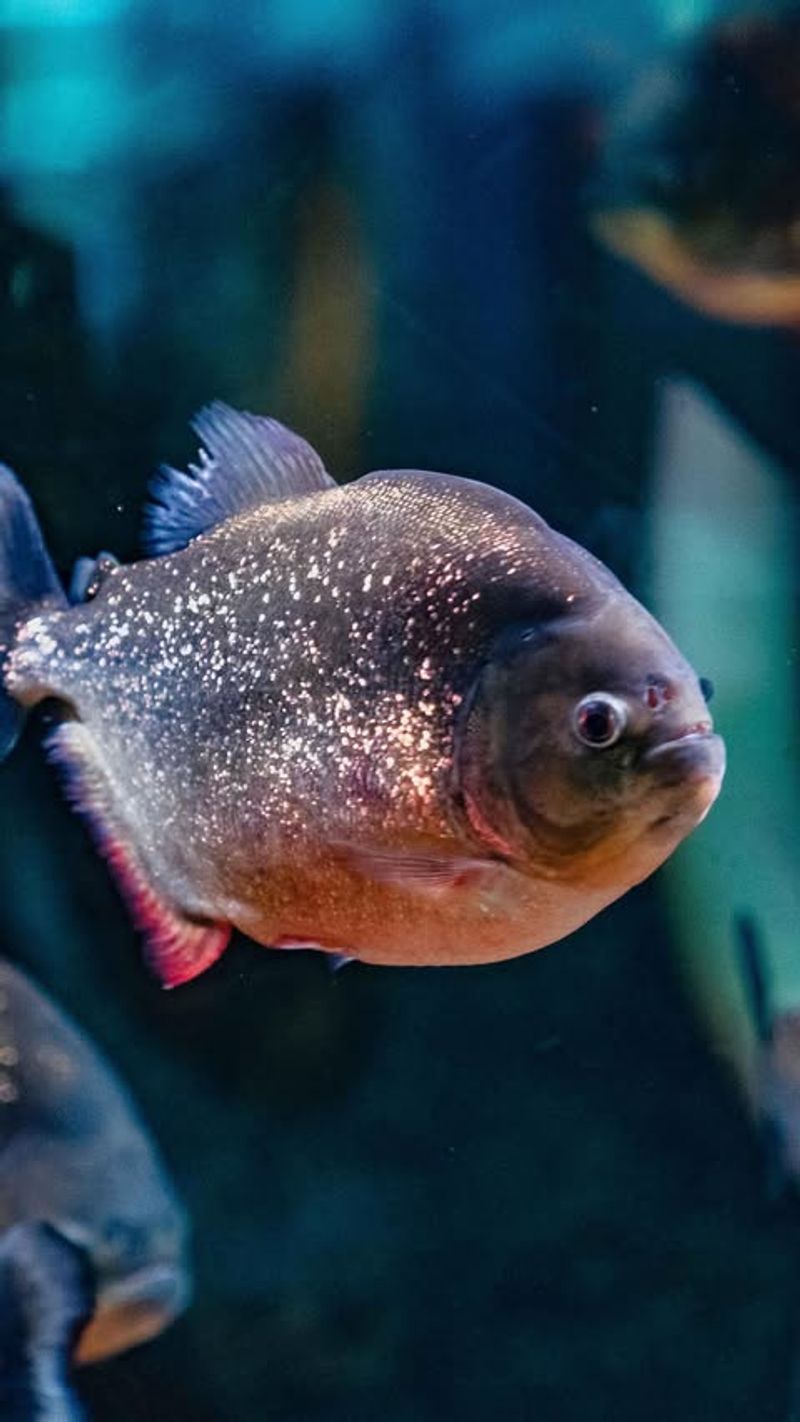
Piranhas have long been infamous for their fearsome reputation, and for good reason. Despite their small size, these fish pack a punch with their sharp teeth and powerful bite. A school of piranhas can strip down prey remarkably fast, leaving behind only bones.
While they are not typically aggressive towards humans, they are opportunistic feeders and can attack if provoked or if they sense vulnerability. In an aquarium setting, piranhas require ample space and must be kept in groups to minimize stress.
They are best suited for experienced aquarists who are aware of their complex social behaviors and dietary needs. Providing a varied diet and a well-structured environment can help reduce aggression. It’s essential to handle piranhas with care, ensuring they are not startled or overcrowded.
Their natural instincts can lead to aggression if they feel threatened or confined.
Understanding their behavior and maintaining a suitable habitat is key to safely keeping piranhas in a home aquarium. Although they appear menacing, many fish enthusiasts find their intelligence and intricate social structures fascinating.
2. Betta Fish
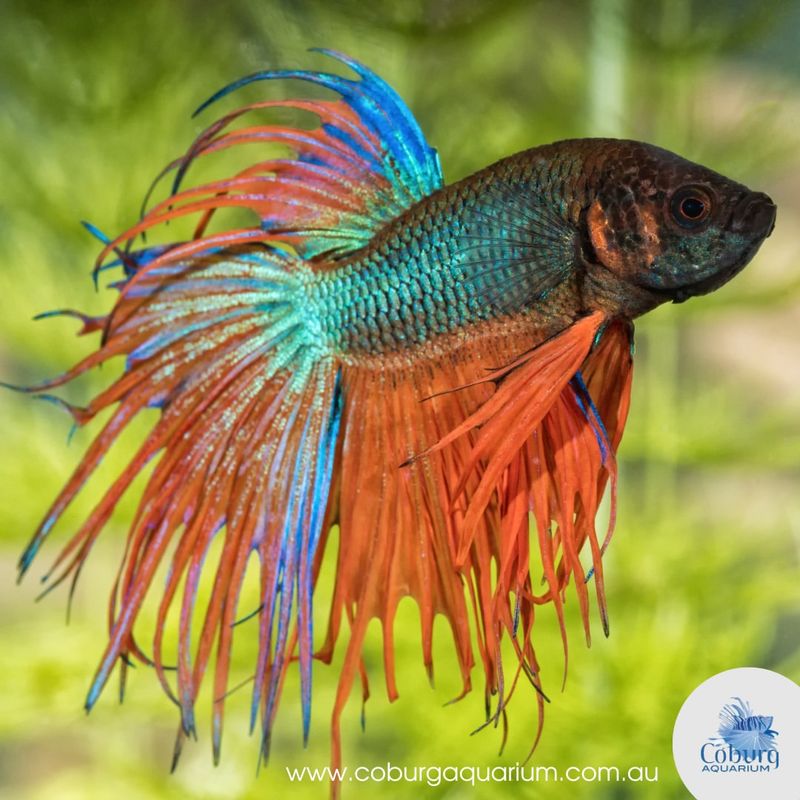
Betta fish, often known for their stunning colors and flowing fins, are a popular choice among aquarium hobbyists. However, these seemingly delicate fish harbor a fiercely territorial nature, especially towards their own kind.
Male bettas, in particular, cannot be housed together, as their aggressive instincts can lead to violent confrontations. Their aggression is not limited to other bettas; they may also harass smaller, more timid fish in a community tank.
Ensuring proper tank mates is crucial to prevent stress and injury, requiring careful consideration of their companions’ size and temperament. Bettas thrive best in a peaceful environment with plenty of hiding spots and an appropriate tank size.
While they can be solitary, providing mental stimulation through environmental enrichment helps curb boredom and aggression.
Despite their notorious aggression, bettas are beloved for their beauty and unique personalities, offering endless fascination for those who appreciate their vibrant displays and intricate behaviors.
3. Red Tail Shark
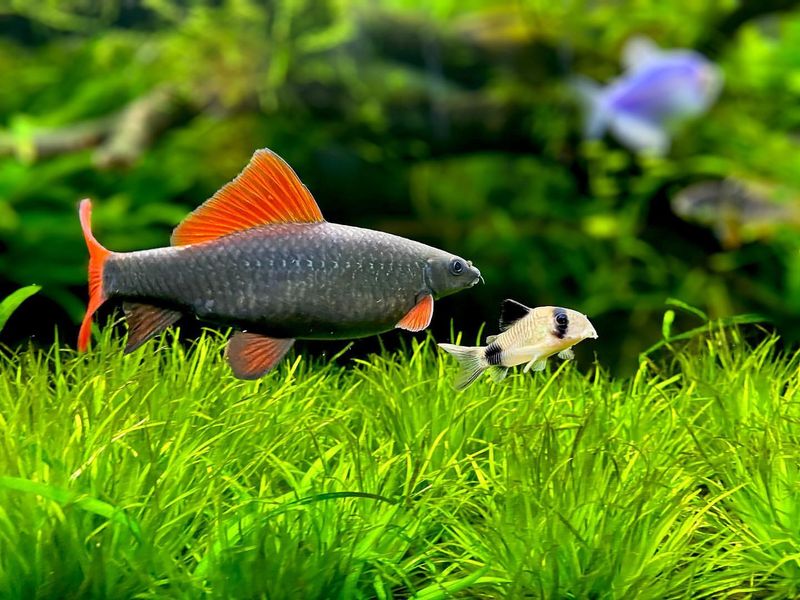
The Red Tail Shark, with its striking appearance and vibrant red tail, often catches the eye of aquarium enthusiasts. Despite its beauty, this fish is renowned for its territorial nature.
Red Tail Sharks require ample space and hiding spots to claim as their own, reducing the risk of aggression towards tank mates. They are generally best kept as a single specimen in a community tank, or with other robust species that can hold their own.
Smaller or more timid fish might become targets of harassment, leading to stress or injury. Providing a well-structured habitat with caves and plants can help manage their territorial instincts. It’s essential to monitor their interactions within the tank, ensuring they do not dominate or bully other fish.
Properly managed, Red Tail Sharks can be a captivating addition to an aquarium, offering both beauty and a glimpse into the complexities of territorial fish behavior.
4. Flowerhorn Cichlid
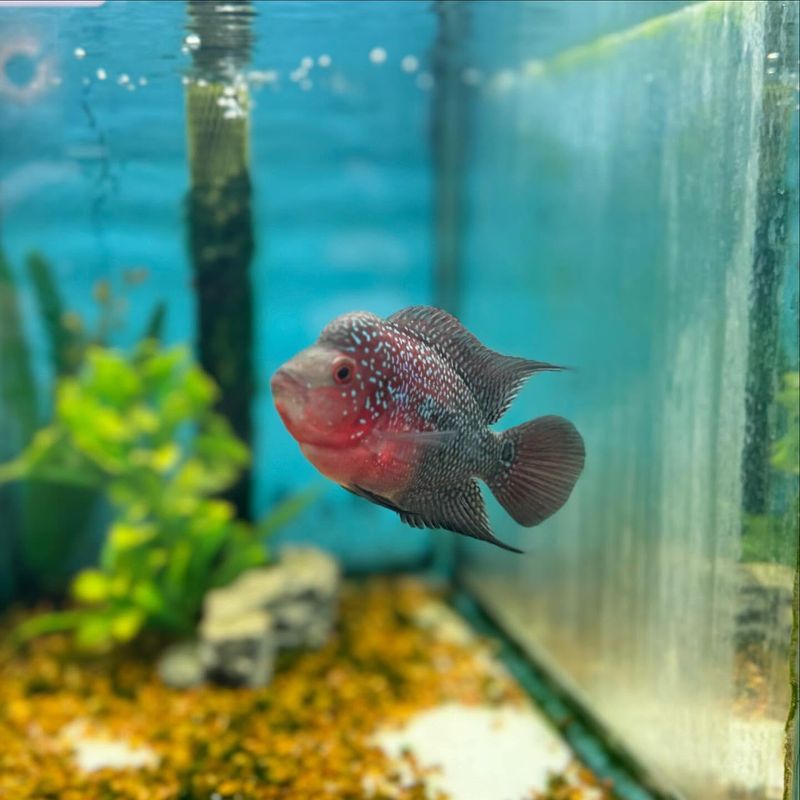
Flowerhorn Cichlids are known for their unique appearance, characterized by a prominent head bump and striking coloration. These fish, however, are not just about looks; they possess a strong, aggressive temperament that demands respect from those who choose to keep them.
Highly territorial, Flowerhorns require plenty of space to thrive. They should ideally be kept alone or with other large, robust fish that can withstand their assertive nature.
Their aggression is not limited to other fish; they are known to rearrange aquascapes and can even bite their owners during tank maintenance. Providing a spacious environment with secure hiding places and robust decorations can help manage their aggression.
Regular monitoring and careful planning of tank mates are essential to prevent potential conflicts. With their captivating appearance and active behavior, Flowerhorn Cichlids continue to be popular among aquarists who appreciate their vibrant personality and stunning display.
5. Oscar Fish
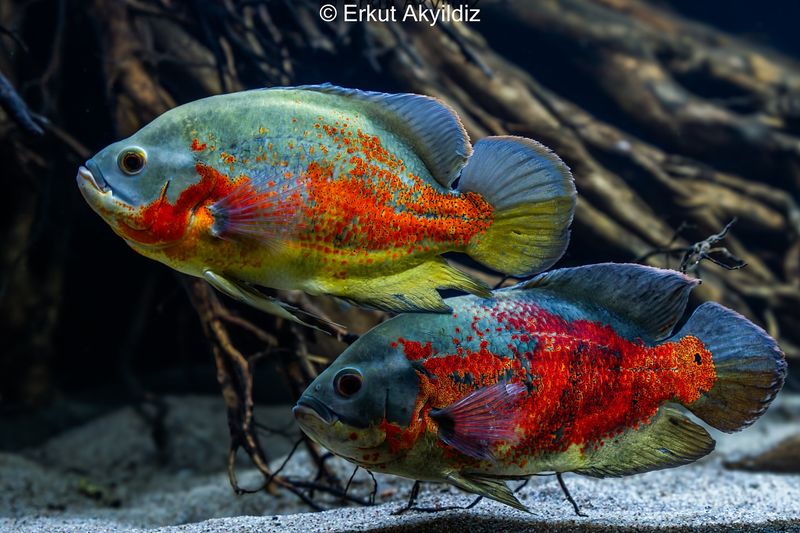
Oscar Fish are a popular choice for large aquariums, thanks to their impressive size and engaging personalities. Yet, their seemingly gentle demeanor masks a robust and often aggressive nature, particularly towards smaller fish.
Oscars require spacious tanks to accommodate their growth and territorial instincts. They are best kept with similar-sized or larger fish that can handle their assertive behavior.
Their intelligence and curiosity mean they often interact with their environment, leading to rearranging or uprooting decorations. Providing a stable environment with ample swimming space and minimal competition can help reduce aggression.
Regular feeding and environmental enrichment are key to keeping them occupied and content. Despite their sometimes aggressive tendencies, Oscar Fish are beloved for their intelligence, making them a favorite among fish enthusiasts who enjoy watching their dynamic behaviors.
6. Jack Dempsey
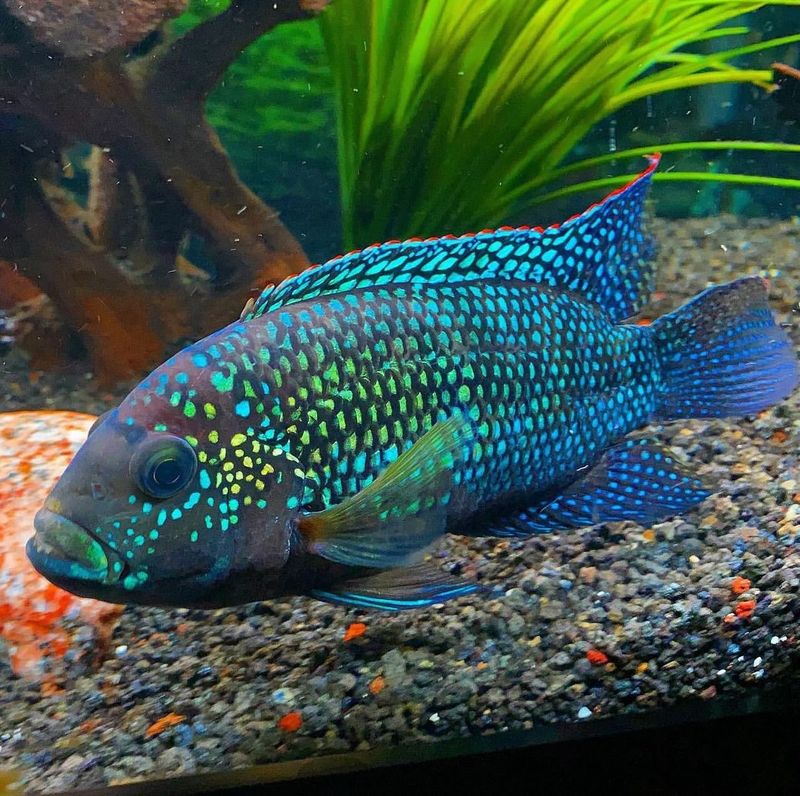
The Jack Dempsey fish, named after the famous boxer, is known for its striking appearance and equally striking temperament. These fish are fiercely territorial and can become aggressive, particularly during breeding.
They require a spacious environment with plenty of hiding spots to claim as their own. Compatible tank mates should be chosen carefully, ideally large, robust species that can withstand their assertive behavior. Smaller, more timid fish may suffer from stress or injury if housed with a Jack Dempsey.
Providing a well-structured tank with rock formations and plants can help manage their territorial instincts. Regular observation is essential to ensure harmony within the tank, as Jack Dempseys can become more aggressive with maturity.
Despite their challenging nature, these fish are prized for their beauty and the dynamic, engaging presence they bring to a home aquarium.
7. Green Terror Cichlid
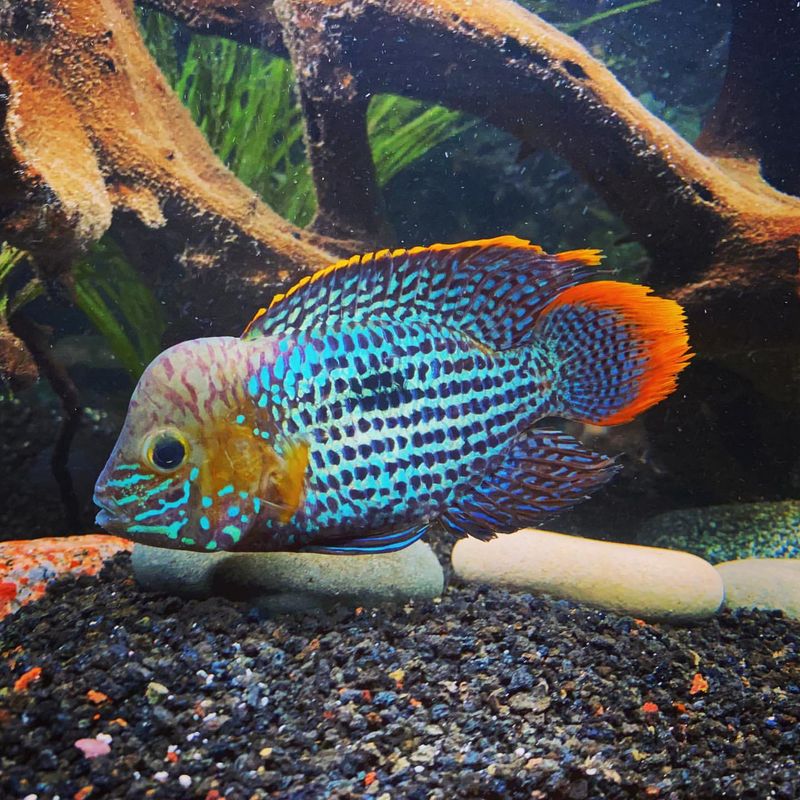
The Green Terror Cichlid is an imposing and beautiful fish, known for its vibrant colors and dynamic personality. However, its name is no misnomer; these fish are highly territorial and can be aggressive towards tank mates.
Green Terrors require ample space and a well-structured habitat to thrive. They are best kept with other large, robust fish that can handle their assertive nature. Smaller or more passive fish can become targets of aggression, leading to stress or injury.
Providing plenty of hiding spots and secure territories within the tank can help manage their aggression. Regular monitoring and careful selection of tank mates are essential to maintain a peaceful environment.
With proper care, Green Terrors can be a stunning and rewarding addition to an aquarium, showcasing both beauty and bold behavior.
8. Tiger Barb
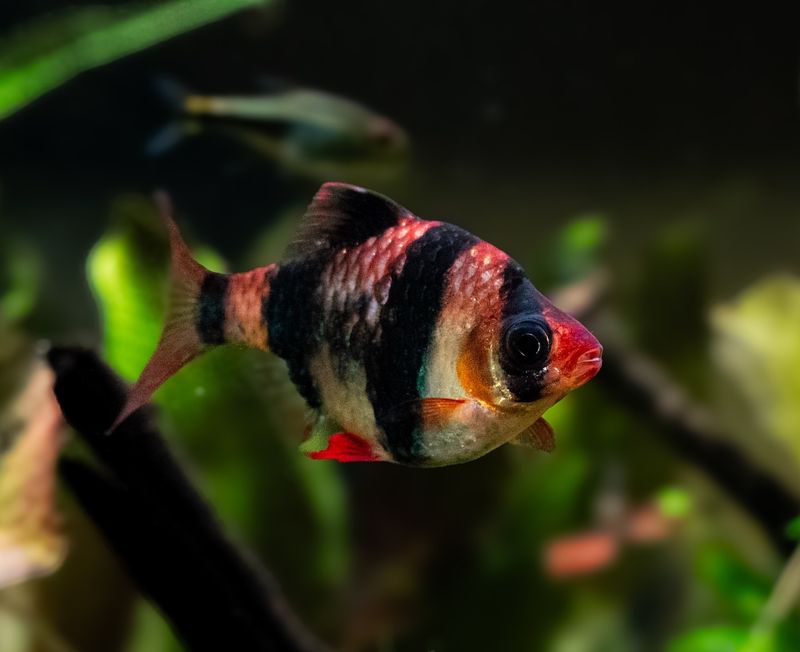
Tiger Barbs are small, active fish that bring energy and color to a community aquarium. Despite their size, they are known for nipping fins and displaying aggressive tendencies, particularly towards long-finned or slow-moving fish.
It’s best to keep Tiger Barbs in groups of at least six to minimize aggression, as a larger school tends to diffuse their focus and reduce fin-nipping behavior. Providing plenty of space and hiding spots can also help manage their energetic nature.
Tank mates should be chosen carefully, ideally other active and similarly sized fish that can handle their lively behavior. With proper planning and care, Tiger Barbs can be a vibrant and dynamic addition to an aquarium, offering both excitement and visual appeal.
9. Convict Cichlid
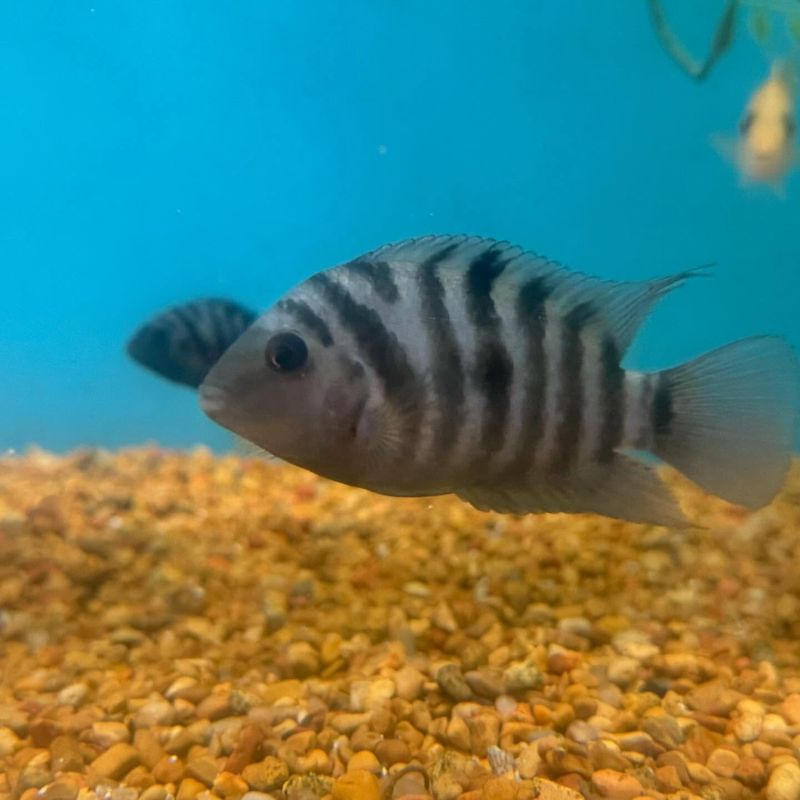
Convict Cichlids are small but mighty, known for their bold stripes and even bolder personalities. These fish are fiercely territorial, especially during breeding when they fiercely guard their eggs and fry. They require a well-structured tank with plenty of hiding spots to establish territories.
Compatible tank mates should be chosen carefully, ideally robust species that can withstand their assertive nature. Smaller or more timid fish may fall victim to their aggressive behavior. Providing a stable environment with secure territories can help manage their aggression.
Regular observation is essential to ensure harmony within the tank, particularly as Convict Cichlids can become more aggressive with maturity. Despite their challenging nature, these fish are prized for their beauty and engaging behaviors, offering an intriguing presence to a home aquarium.
10. Chinese Algae Eater
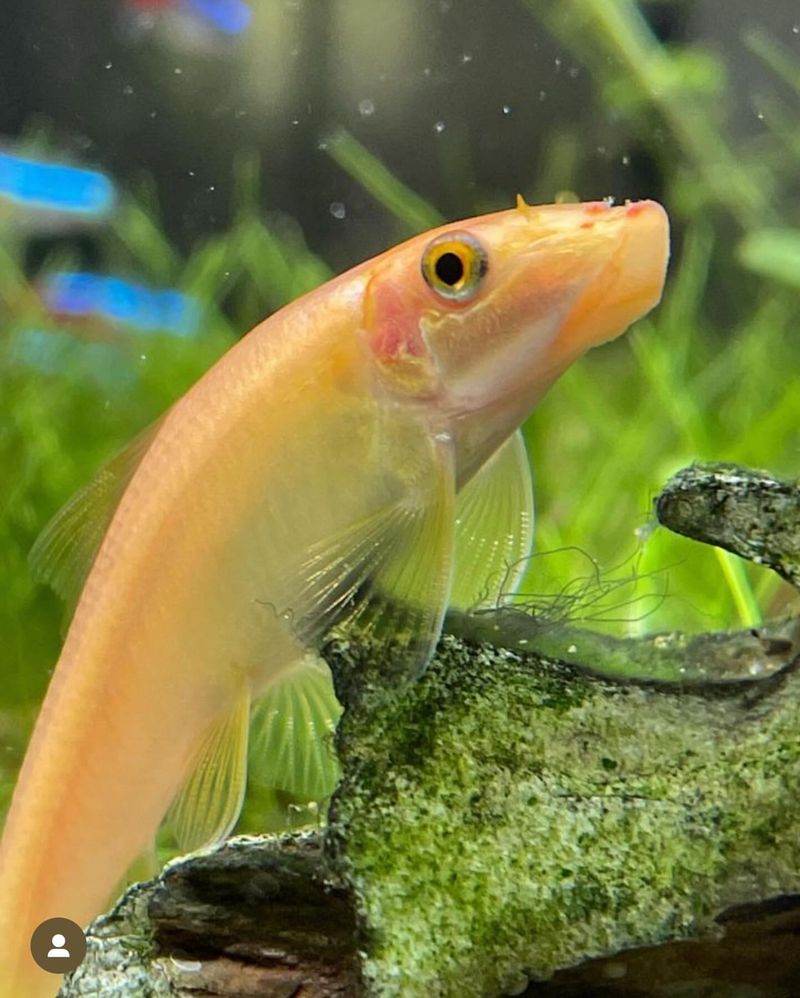
The Chinese Algae Eater, often sought after for its algae-cleaning abilities, can become surprisingly aggressive as it matures. While juveniles are typically peaceful, adults may develop territorial instincts and harass other fish.
They require ample space and should ideally be kept with robust tank mates that can withstand their assertive behavior. Smaller or more timid fish might become targets of aggression, leading to stress or injury.
Providing a spacious and well-structured environment can help manage their behavior, though regular observation is crucial.
Despite their potential for aggression, Chinese Algae Eaters are valued for their practical role in maintaining tank cleanliness and their unique appearance. When properly managed, they can be a beneficial and intriguing addition to an aquarium.
11. Angelfish
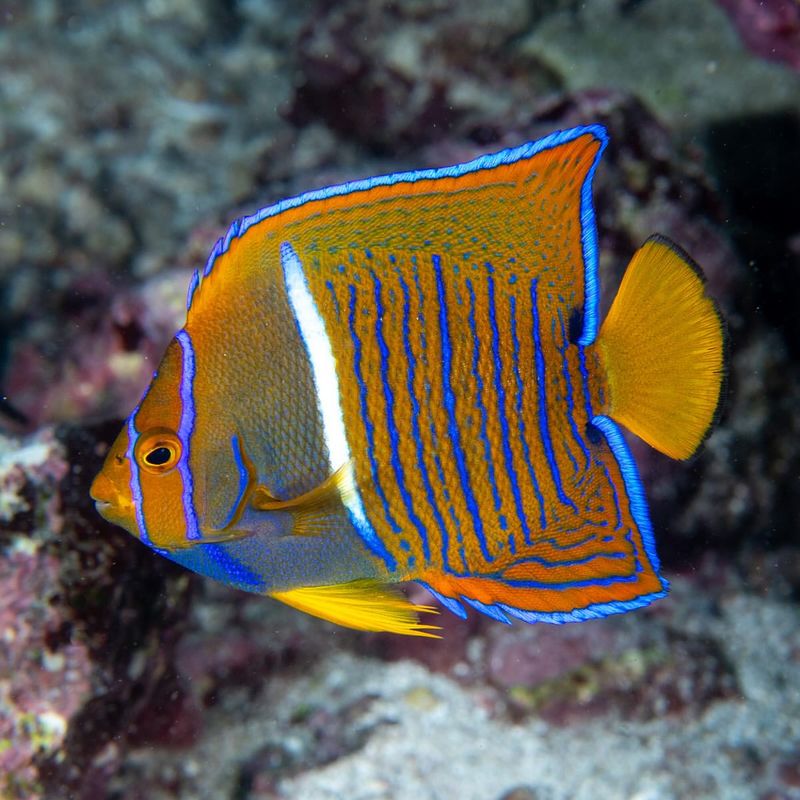
Angelfish, with their elegant appearance and graceful movements, are a popular choice for freshwater aquariums. However, beneath their serene exterior lies a territorial nature, particularly as they mature or during breeding.
They require a peaceful environment with ample swimming space and hiding spots. Tank mates should be chosen carefully, ideally other peaceful species that can coexist without triggering territorial aggression. Providing a well-structured habitat with plants and decorations can help manage their behavior.
Regular monitoring is essential to ensure harmony within the tank, as Angelfish can become more assertive with age. Despite their challenges, Angelfish are cherished for their beauty and tranquil presence, offering endless fascination for those who appreciate their unique aesthetic.
12. Clown Loach
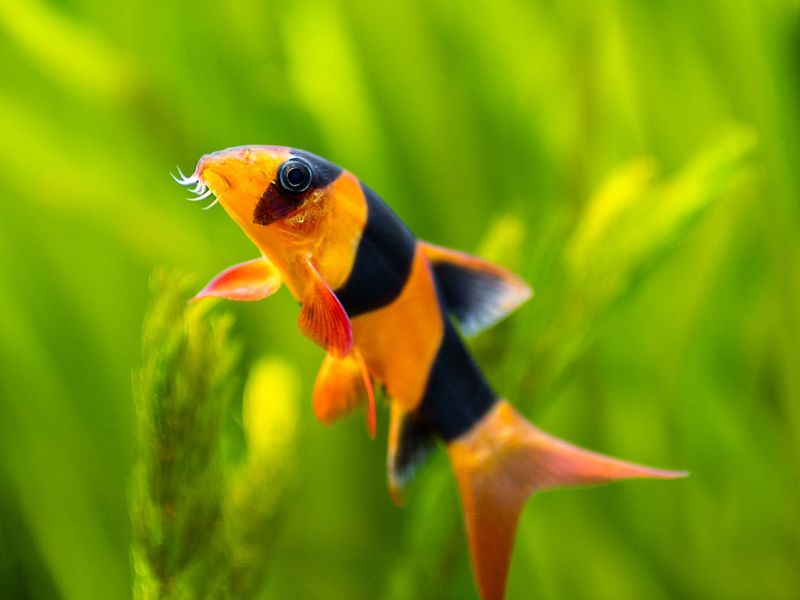
Clown Loaches are known for their playful behavior and striking patterns. Despite their sociable nature, they can sometimes become territorial, especially when not kept in groups.
It’s best to keep Clown Loaches in groups of at least five to minimize territorial behavior, as larger groups provide them with social structures that reduce stress. Providing a spacious environment with plenty of hiding spots is essential for their well-being.
Tank mates should be chosen carefully, ideally other peaceful and similarly sized fish that can coexist without triggering territorial instincts. With proper care and planning, Clown Loaches can be a delightful and engaging addition to an aquarium, offering both entertainment and visual interest.
13. Black Ghost Knifefish
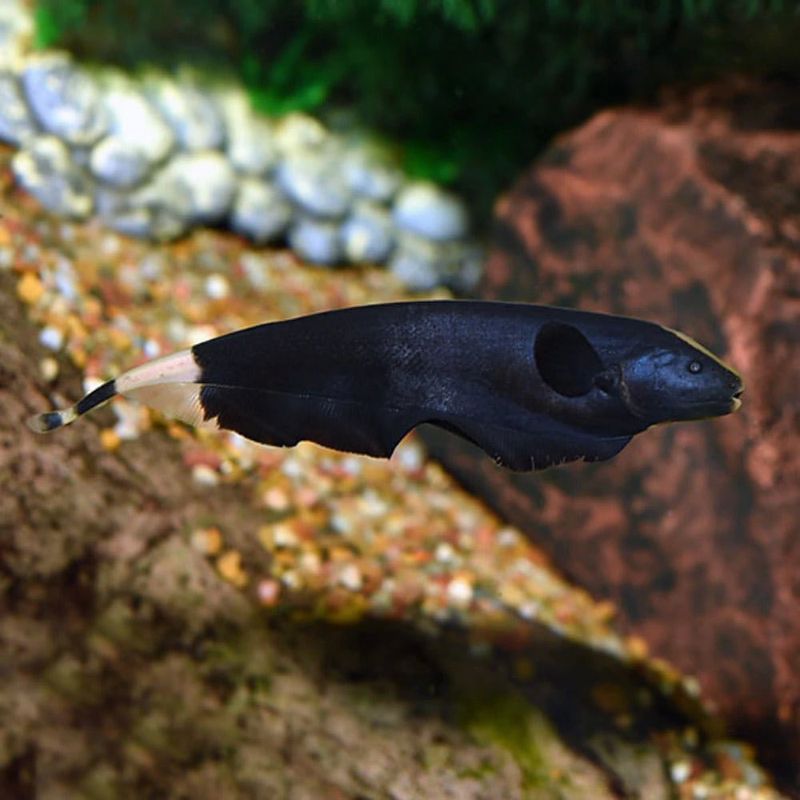
The Black Ghost Knifefish is an alluring and mystifying species, known for its unique appearance and electric sensory abilities. However, their seemingly tranquil nature can turn territorial, especially in confined spaces.
Black Ghost Knifefish require a spacious and dimly lit environment with plenty of hiding spots to thrive. They are best kept with other peaceful or similarly-sized fish that can coexist without triggering aggressive behavior.
If you provide a well-structured habitat with secure territories, you can help manage their territorial instincts. Regular monitoring is essential to ensure harmony within the tank, as these fish can become more assertive as they mature.
Despite their challenges, Black Ghost Knifefish are celebrated for their beauty and captivating presence, offering an intriguing addition to any aquarium.
14. Jewel Cichlid
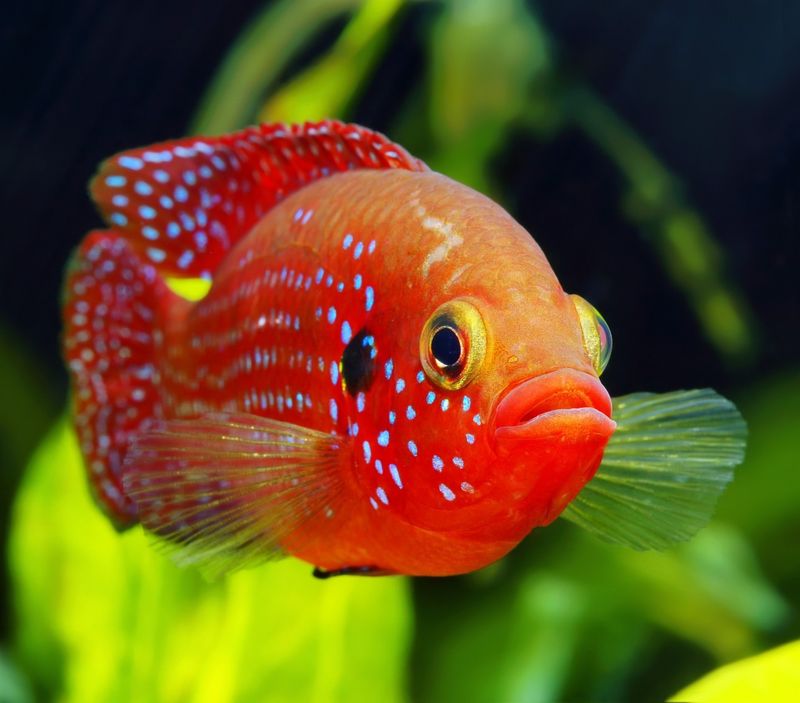
Jewel Cichlids are renowned for their vibrant colors and dynamic personalities. However, these striking fish are also known for their aggressive tendencies, particularly during breeding.
They require a well-structured tank with ample hiding spots to claim as their own, reducing the risk of territorial disputes. Compatible tank mates should be chosen carefully, ideally other robust species that can withstand their assertive behavior.
By providing a stable environment with secure territories you can help manage their aggression. Regular observation is essential to ensure harmony within the tank, as Jewel Cichlids can become more aggressive with maturity.
Despite their challenges, these fish are prized for their beauty and the dynamic presence they bring to a home aquarium.
15. Paradise Fish
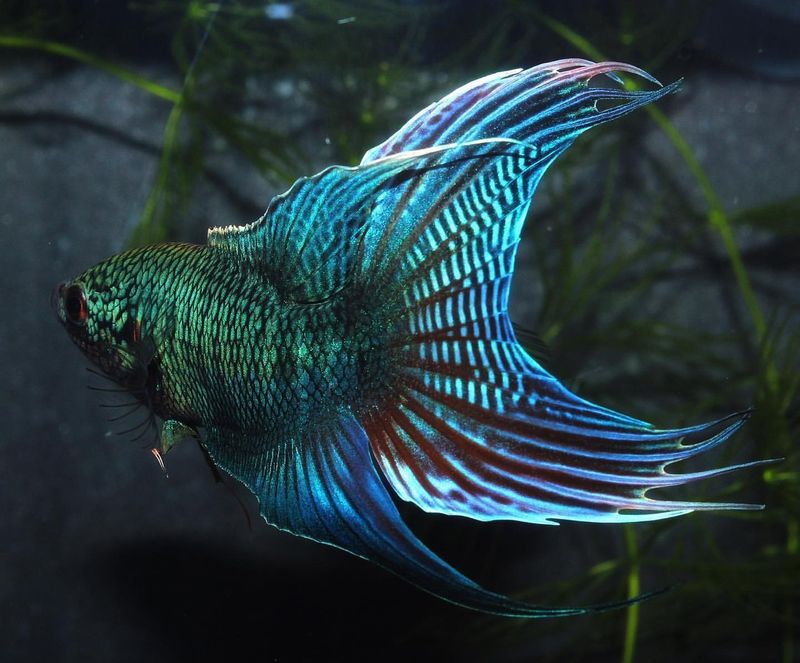
Paradise Fish are known for their vibrant colors and elaborate fins, making them a popular choice for aquarists. However, their beauty is matched by a strong territorial instinct, which can lead to aggressive behaviors.
They require a peaceful environment with plenty of hiding spots and gentle water flow. Tank mates should be chosen carefully, ideally other peaceful species that can coexist without triggering territorial instincts.
Providing a well-structured habitat with plants and decorations can help manage their behavior. Regular monitoring is essential to ensure harmony within the tank, as Paradise Fish can become more assertive with age.
However, Paradise Fish are cherished for their beauty and tranquil presence, offering endless fascination for those who appreciate their unique aesthetic.

